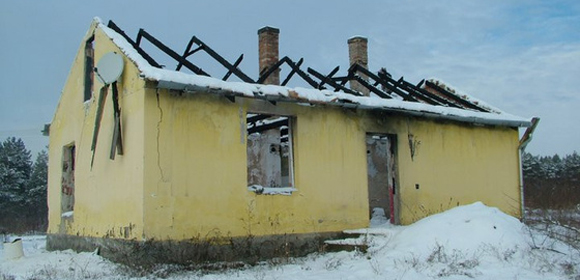Can European security services and law enforcement agencies be entrusted with policing the far Right?
Far-right and neo-Nazi violence – on the increase across Europe – is the subject of ongoing research by the Institute of Race Relations which releases today an interim report on the security services’ approach to the far Right in Austria, Hungary and Germany.
This timely report, State intelligence agencies and the far Right: A review of developments in Germany, Hungary and Austria, is issued just two weeks before the largest trial on far-right extremism in the history of the Federal Republic of Germany opens in Munich. Beate Zschäpe, the sole surviving member of the National Socialist Underground and four co-defendants face charges relating to ten murders that took place between 2000 and 2007. Of the victims, shot in the head at close range, eight were Turkish or of Turkish origin, one was a Greek citizen, one a female German police officer. While the Munich trial is guaranteed international attention, the most significant trial on far-right extremism in eastern Europe in recent years has been ongoing since March 2011 at the Pest County High Court in Hungary, with barely any coverage. Four neo-Nazis face charges relating to the serial killing of six Roma and many other violent crimes. Austria faces its own neo-Nazi scandal too, since Nazi propaganda, sawn-off shotguns, machine guns and explosives were seized during a raid on the headquarters of the neo-Nazi criminal fraternity, Objekt 21 in January 2013.
The IRR’s research into intelligence services’ methods suggests that far from clamping down on growing fascism, some of the tactics of security services are enhancing conditions for its growth. The report also reveals evidence of:
- a generalised failure to recognise the danger posed by the far Right;
- institutional racism and institutional negligence;
- a failure to interact with police murder investigations;
- a will to protect neo-Nazi informers at the expense of law enforcement.
‘There has systematic betrayal of minority communities’, concludes Liz Fekete, author of the report and Director of IRR. ‘The sad truth is that the families of the Roma in Hungary and those men of Turkish origin killed by the NSU in Germany carry permanent scars, the result of botched investigations that in some cases treated them not as grieving relatives but potential suspects. Given the harmonisation of so much of European police and security policies, I am seriously concerned that what has happened in Austria, Germany and Hungary could represent the European norm. On the evidence I have seen, BME communities cannot trust security services to protect them from the murderous violence of the far Right. A thorough audit of all European intelligence services’ programmes to counter far-Right violence is overdue.’
Related links
Download a copy of the report here (pdf file, 544kb)


From the perspective of a Belfast-based human rights NGO have to say this report resonates with many of the issues which arouse in our research into covert policing here. (“Policing you don’t See available at: http://www.caj.org.uk/contents/1139)
The report is very timely given the ‘National Crime Agency’ (NCA dubbed the ‘British FBI’) will soon be established. Given experiences here in the past we have a hard fought accountability structure for the Police Service of Northern Ireland including an independent oversight board and complaints ombudsman– which has already been dangerously dented by the passing of the lead ‘national security’ covert policing to the unaccountable MI5 – the subject of our above report. The NCA is to have full police arrest powers, powers to direct other police forces and powers to run its own informers, surveillance etc and will answer directly to the British Home Secretary. Here there were such serious concerns that the NCA would further erode and bypass the accountability safeguards introduced as a result of the peace process that parties in the Northern Ireland Executive (given most policing is now in their powers) blocked the NCAs introduction as a police force here (further information at http://www.caj.org.uk/contents/1153). The advent and operation of the NCA is something groups in Britain should also keep a close eye on.
Following the report “Das Kartell der Verharmloser. Wie deutsche Behörden systematisch rechtsextremen Alltagsterror bagatellisieren” last year (read the IRR review of the report here), Amadeu Antonio Stiftung has now published a new report, which focuses on the culture of indifference to the far right among the authorities.
For many years the far right has been systematically underestimated and, if at all, it has been perceived as a problem of the Eastern part of Germany. The report ”Staatsversagen. Wie Engagierte gegen Rechtsextremismus im Stich gelassen werden. Ein Report aus Westdeutschland” now examines the situation in ten locations in six Western German states.
The report documents the everyday trivialization of right wing violence by the police, judiciary and politicians. Many civil society initiatives that have been working against right wing extremism for many years are not supported, or are even discredited, by the authorities. Survivors of violence are not taken seriously, investigations are often biased. The terror of the NSU needs to be seen in this broader context.
The reports ”Staatsversagen. Wie Engagierte gegen Rechtsextremismus im Stich gelassen werden. Ein Report aus Westdeutschland” and “Das Kartell der Verharmloser. Wie deutsche Behörden systematisch rechtsextremen Alltagsterror bagatellisieren” and further information is available at http://www.amadeu-antonio-stiftung.de/staatsversagen